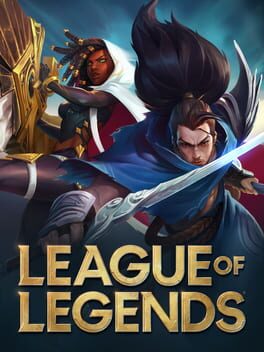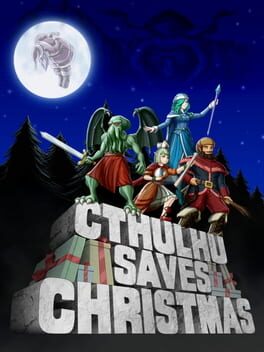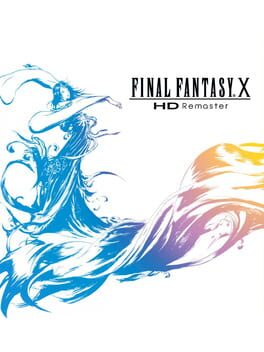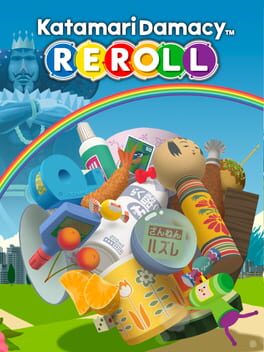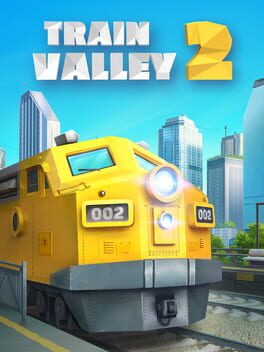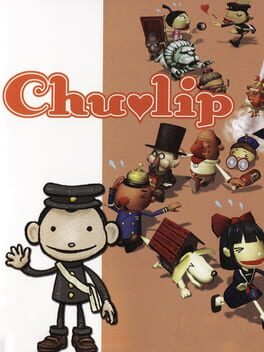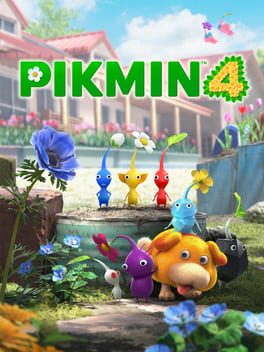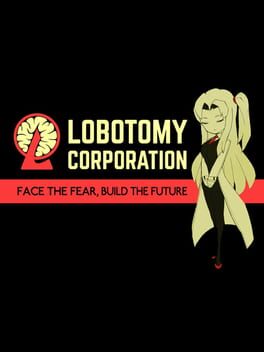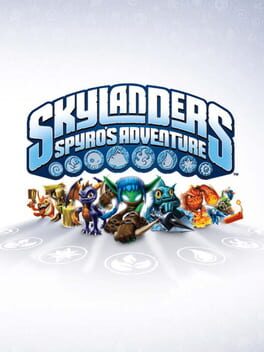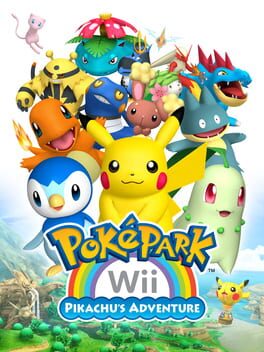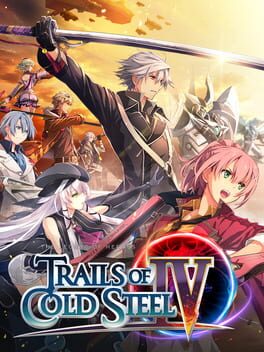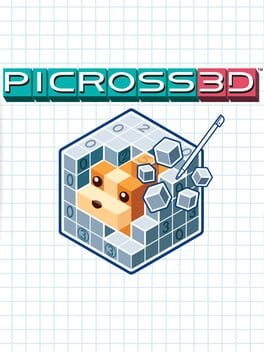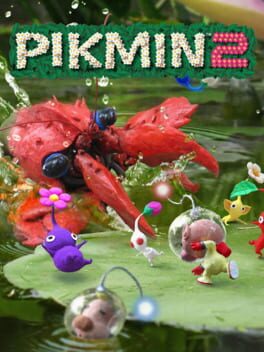Gana
2009
Mechanically speaking, this is a very solid and well designed game. The small nature of the party and scope of the game means that the systems that do exist are all able to interact with each other in a lot of interesting ways, creating lots of opportunity for strategy and build variety even throughout a single playthrough. The equipment and insanity skills in particular are favorites of mine; the equipment is designed in such a way that most of it encourages a specific playstyle, and the ever-changing nature of equipment means that this system actively encourages you to change your builds around frequently. The insanity skills are similarly fun, as the random and unpredictable nature of them encourage on-the-fly strategizing and improvisation, meaning combat will rarely get stale.
I really, really like this game's cast and worldbuilding. Compared to other FF games I felt like this game's party dynamics were super strong. Very good characterization all throughout, but my favorites were Yuna and Auron.
I was not crazy about this game's combat. The sphere grid system is really cool, but most fights in the game feel slower than they should be. This is partially because of how party members are required to participate in a battle to get AP, and partially because once you get to the late game the damage cap becomes a very real obstacle in terms of killing things in a timely manner. Also, a lot of the endgame optional content seems to require a lot of grinding to improve sphere grids, and if it's not grinding, it's some ridiculously hard minigame like lightning dodging or frame perfect butterfly catching. The monster catching is similarly grindy. tl;dr, a lot of the gameplay in FFX is stuff that is cool on paper but kind of sucks to actually do. Also, shoutout to the remaster version for adding a bunch of superbosses to the map that makes running around in late game way more annoying than it was in the original.
However, the boss fights in this game are generally very cool. They require strategy and are the points in the game where I always feel like the choices I made on the sphere grid are tested the best, which leads to a lot of satisfaction. There are, of course, some puzzle bosses that are not very fun, but generally these are outnumbered.
Overall I liked FFX a lot and can see why it has as good of a reputation as it does.
I was not crazy about this game's combat. The sphere grid system is really cool, but most fights in the game feel slower than they should be. This is partially because of how party members are required to participate in a battle to get AP, and partially because once you get to the late game the damage cap becomes a very real obstacle in terms of killing things in a timely manner. Also, a lot of the endgame optional content seems to require a lot of grinding to improve sphere grids, and if it's not grinding, it's some ridiculously hard minigame like lightning dodging or frame perfect butterfly catching. The monster catching is similarly grindy. tl;dr, a lot of the gameplay in FFX is stuff that is cool on paper but kind of sucks to actually do. Also, shoutout to the remaster version for adding a bunch of superbosses to the map that makes running around in late game way more annoying than it was in the original.
However, the boss fights in this game are generally very cool. They require strategy and are the points in the game where I always feel like the choices I made on the sphere grid are tested the best, which leads to a lot of satisfaction. There are, of course, some puzzle bosses that are not very fun, but generally these are outnumbered.
Overall I liked FFX a lot and can see why it has as good of a reputation as it does.
I can see the appeal, but I don't think it's for me. Even after getting the hang of the controls I just don't really have very much fun? The stuff you see everyone talk about with these games is the power-trip stuff of rolling up literally everything into a ball, but to me it feels more like 70% of the gameplay is actually centered around trying to navigate through an obstacle course while also rolling a massive ball around.
2019
2002
Very creative, unique game. Playing it can honestly be unpleasant, so you have to be in the mood for the type of game that sacrifices its own fun to tell its story. (I personally softened it with emulator save states and speedups) I really like its art style and atmosphere, but I decided to put it away once the game got too obtuse for me to really know what I was doing without just following a walkthrough step by step. I'm sure that it's possible to finish this game guideless, but you have to throw a lot of stuff at the wall, both time and money, to see what eventually works when a lot of people might not like that.
2023
This review contains spoilers
Wish I could say I liked this more after the decade long wait.
Pikmin has always been a unique series. Put on the gamecube, a console known for its creative choices, Pikmin was a cutesy RTS game with AI that was too bad to ever be dependable. It was a weird game, that was deceptively unforgiving in its difficulty. Pikmin 2 came out on the same console with several new decisions made, and overall being a significantly more difficult game. A lot of time passed before Pikmin 3 came out, but it was perfect when it did. Each of these games felt unique from each other, like they were all trying to both build off of each other while still adding its own things, and always having a certain feeling to their gameplay that made it feel like they were only designed for people who actually enjoyed doing difficult, on the fly strategy under a timer.
Pikmin 4 attempts to be a love letter to the series, in that it constantly brings in elements from all of the other games in a way that makes it feel like some sort of anniversary game or victory lap. However, Pikmin 4 also makes a lot of choices that felt antithetical to Pikmin's unique feeling as a series. Frankly, it streamlined everything. It sanded off all the edges. I barely had any deaths in the course of a full playthrough. Oatchi trivializes combat, features like Idler's Alert minimize the amount of effort you have to put into Pikmin management, and the in-game time rewind mechanic takes almost all of the danger out of the atmosphere. I hate to use buzzwords, but they took out the soul and try to appeal to nostalgia to make you fill in the gaps. As an example of this, after the initial shock of seeing the Water Wraith appear, I was disappointed after it failed to actually kill a single one of my Pikmin. Not to say that it doesn't provide any new content, I found the night missions mildly entertaining if nothing else, but it doesn't feel like much.
The game also feels very handholdy in general. You can't go a single day without having some NPC give you a text alert for something that Pikmin 2 would've just let you suffer through. You have a quest log and a skill tree, for some reason. You can purchase upgrades for yourself, some of which are completely game changing and all of which would've just been available from the start if it were any other game in the series. It feels like pointless padding, pointless extra menuing because for some reason Nintendo felt like they needed to add additional rewards to encourage you to actually engage with the game's optional content. A lot of the game's design decisions feel very corporate, where originally the series felt anything but.
To sum things up: this is the first time I've chosen not to 100% a Pikmin game out of sheer boredom.
Pikmin has always been a unique series. Put on the gamecube, a console known for its creative choices, Pikmin was a cutesy RTS game with AI that was too bad to ever be dependable. It was a weird game, that was deceptively unforgiving in its difficulty. Pikmin 2 came out on the same console with several new decisions made, and overall being a significantly more difficult game. A lot of time passed before Pikmin 3 came out, but it was perfect when it did. Each of these games felt unique from each other, like they were all trying to both build off of each other while still adding its own things, and always having a certain feeling to their gameplay that made it feel like they were only designed for people who actually enjoyed doing difficult, on the fly strategy under a timer.
Pikmin 4 attempts to be a love letter to the series, in that it constantly brings in elements from all of the other games in a way that makes it feel like some sort of anniversary game or victory lap. However, Pikmin 4 also makes a lot of choices that felt antithetical to Pikmin's unique feeling as a series. Frankly, it streamlined everything. It sanded off all the edges. I barely had any deaths in the course of a full playthrough. Oatchi trivializes combat, features like Idler's Alert minimize the amount of effort you have to put into Pikmin management, and the in-game time rewind mechanic takes almost all of the danger out of the atmosphere. I hate to use buzzwords, but they took out the soul and try to appeal to nostalgia to make you fill in the gaps. As an example of this, after the initial shock of seeing the Water Wraith appear, I was disappointed after it failed to actually kill a single one of my Pikmin. Not to say that it doesn't provide any new content, I found the night missions mildly entertaining if nothing else, but it doesn't feel like much.
The game also feels very handholdy in general. You can't go a single day without having some NPC give you a text alert for something that Pikmin 2 would've just let you suffer through. You have a quest log and a skill tree, for some reason. You can purchase upgrades for yourself, some of which are completely game changing and all of which would've just been available from the start if it were any other game in the series. It feels like pointless padding, pointless extra menuing because for some reason Nintendo felt like they needed to add additional rewards to encourage you to actually engage with the game's optional content. A lot of the game's design decisions feel very corporate, where originally the series felt anything but.
To sum things up: this is the first time I've chosen not to 100% a Pikmin game out of sheer boredom.
2018
Initial disclaimer: Project Moon sucks right now, politically. This game came out well before that, but if you were to start it at the time of this writing I'd say piracy wouldn't be immoral.
It is unfortunate that PM has blemished their name, because this game is genuinely incredible. One of the most creative things I have played in years. The main concept is easy to describe; you're managing an (off brand) SCP facility. However, while SCP video games have been made, none have managed to actually provide the feeling of managing a facility full of creatures that range from innocuous to world-ending. This game manages to provide that feeling beautifully.
The gameplay loop is incredible. You start a day by picking out a new abnormality to manage. These can range from docile homebodies that never go outside to things that could single-handedly kill every single person in your facility if it got out. Across all the abnormalities in the game, every single game mechanic is interacted with in at least some way. Some act differently depending on employee stats, some are affected by the amount of real time that has passed, some act differently depending whether or not they're on your screen, etc. Until you reach near ~90% codex completion, I'd say you're on your toes almost every day. Going from Day 1 to 50 in this game is a process of picking your own poisons as the abnormalities you have to deal with get more and more annoying, and the things you need to be aware of each day begin piling up.
I do wish one thing: that the game made it more clear that it is a roguelike. Your chances of reaching Day ~30 on a first playthrough are incredibly slim, let alone Day 50, but when you reset back to Day 1, you keep many of the rewards that you've earned on previous runs, such as monster information and mission completion bonuses. Despite this I feel like a lot of players get turned off after their first run because they don't realize that you are essentially supposed to fail at first.
I know before PM exploded, a lot of PM fans would tell new players to skip this game, or to watch the cutscenes online. I greatly reject this notion, as this game is truly one of a kind and isn't something that should be missed. Additionally, the gameplay and story build on each other beautifully in terms of how you cope with employee death and how painful those multiple resets really become. It is a genuinely beautiful example of gameplay and story integration.
This game is weird, beautiful, clunky, creative, buggy, and so, so ambitious that you can just tell that the team behind it had too much ambition for their skill to have ever kept up with. I love all of it.
It is unfortunate that PM has blemished their name, because this game is genuinely incredible. One of the most creative things I have played in years. The main concept is easy to describe; you're managing an (off brand) SCP facility. However, while SCP video games have been made, none have managed to actually provide the feeling of managing a facility full of creatures that range from innocuous to world-ending. This game manages to provide that feeling beautifully.
The gameplay loop is incredible. You start a day by picking out a new abnormality to manage. These can range from docile homebodies that never go outside to things that could single-handedly kill every single person in your facility if it got out. Across all the abnormalities in the game, every single game mechanic is interacted with in at least some way. Some act differently depending on employee stats, some are affected by the amount of real time that has passed, some act differently depending whether or not they're on your screen, etc. Until you reach near ~90% codex completion, I'd say you're on your toes almost every day. Going from Day 1 to 50 in this game is a process of picking your own poisons as the abnormalities you have to deal with get more and more annoying, and the things you need to be aware of each day begin piling up.
I do wish one thing: that the game made it more clear that it is a roguelike. Your chances of reaching Day ~30 on a first playthrough are incredibly slim, let alone Day 50, but when you reset back to Day 1, you keep many of the rewards that you've earned on previous runs, such as monster information and mission completion bonuses. Despite this I feel like a lot of players get turned off after their first run because they don't realize that you are essentially supposed to fail at first.
I know before PM exploded, a lot of PM fans would tell new players to skip this game, or to watch the cutscenes online. I greatly reject this notion, as this game is truly one of a kind and isn't something that should be missed. Additionally, the gameplay and story build on each other beautifully in terms of how you cope with employee death and how painful those multiple resets really become. It is a genuinely beautiful example of gameplay and story integration.
This game is weird, beautiful, clunky, creative, buggy, and so, so ambitious that you can just tell that the team behind it had too much ambition for their skill to have ever kept up with. I love all of it.
I respect what this game is trying to do with the multiple endings, but god damn, it does not make it any more fun to spend maybe a third of your overall playtime on repeated content with little change in gameplay. (This is speculative, I only got to Route B before deciding I wasn't built for this.)
I like everything else. Every character in the cast is great. Weiss in particular is my favorite but they all bounce super well off of each other, both for comedic and serious moments. I can tell that Yoko Taro is cooking some insane shit with the plot, good enough for me to at least want to watch the rest online (a rarity when I drop games, tbh)
EDIT: Okay, I watched the extra content online. I don't feel anything about this at all, and for something that's supposed to require so much time investment to get to, that's not acceptable to me. If I wanted to experience sadness from wasting a bunch of my time, I don't need to play a video game.
I like everything else. Every character in the cast is great. Weiss in particular is my favorite but they all bounce super well off of each other, both for comedic and serious moments. I can tell that Yoko Taro is cooking some insane shit with the plot, good enough for me to at least want to watch the rest online (a rarity when I drop games, tbh)
EDIT: Okay, I watched the extra content online. I don't feel anything about this at all, and for something that's supposed to require so much time investment to get to, that's not acceptable to me. If I wanted to experience sadness from wasting a bunch of my time, I don't need to play a video game.
This review contains spoilers
I'm sure there are people smarter than me with more interesting things to say about CS4, but I put my 90 hours in and I'm going to talk about them
This game is incredibly mid for Kiseki standards. That's not to say it's bad, or that it doesn't have some incredibly good scenes, but the amount of things I had to play through to get there wasn't worth it. This game does not respect your time; that's not new to this series, but it feels especially prevalent with this game.
Let's start with the magic stuff. The Trails series has always had a common theme of political intrigue weaving itself with fantasy elements, all the way back to FC. I think this is what makes The Curse so disappointing; the series has shown that it's capable of writing this combination in fascinating ways without diminishing from either side, but CS4 drops the ball so hard despite The Curse being fairly interesting on a conceptual level. CS4's plot, in theory, centers heavily around an imminent, massive war. Better yet, the war is taking place across most of Zemuria, so it's touching a bunch of locations that 10 games have been getting us attached to. This is a perfect recipe for some high emotional stakes for your finale. The magic side of the plot cancels a lot of this out; the plot isn't actually about the war, it's about the rivalries. For every good sidequest about someone coming to terms with the war, there are two or three about The Curse causing a problem for you to solve.
Unlike the rest of the series, the party is now well aware of magic. No more secret clan of witches, no more mystery behind the schemes the villains are making. You start the game in Eryn Village and the party's motivation lies not in politically based action but in magically based action. For me, this makes it a lot harder to be invested, because frankly, the realm of magic is the realm of bullshit. Writers can make whatever the fuck they want happen with magic, and the worldbuilding around the magic isn't really strong enough for it to feel like something I can study or make predictions about. This isn't something that really bothered me in the past because magic was always a background thing, but in this game it's at the forefront and therefore causes a significant tonal shift from "story about people trying to get through political events" to "story about people doing whatever the magic makes them do". This is an exaggeration, but it's still a noticeable change that I dislike.
Let's talk about villains. Osborne, who I love for being an amazing villain, got a lot out of the ending. I think "guy who became the world's greatest enemy with the specific goal of bringing the evil into himself and sacrificing himself to destroy it" is raw as fuck. I kneel. It's especially cool when you start bringing in Rean foils with his own self sacrifice. The other villains in the game are kinda just there. This goes into my 2nd big complaint with the game; the writers are terrified of making characters evil. Almost everyone here is an apologist, or has a secret agenda, or is being controlled by the curse. THIS IS A STORY ABOUT WAR. I'm not saying there are no exceptions to this, but a vast majority of the people you fight are portrayed as if they aren't even villains. Act 2 is especially awful for this, with a majority of its fights being against people who are either only testing you or are just feeling so guilty about it uwu you should feel bad for them. (fuck claire) On a more civilian level, the game can't even handle making evil minor NPCs. Anyone who says something slightly too patriotic, does something just a little too evil, the party has to lament about how this is the curse. This is literally just not realistic. If you want to write an anti-war story, you are making yourself look outright childish if you refuse to portray how all of the people committing evil, inhumane acts are just as human as the rest of us. As is, CS4 refuses to hold the anyone responsible for the war. Even at the end, the only person arrested is Rufus Albarea, who voluntarily did so for political reasons as if taking the punishment for your crimes is some selfless act. This is maybe the most cowardly thing you could do when writing a story about war. I'm truly impressed.
Let's talk about the video game. CS4 combat is well and truly broken. CS3 was actually balanced on nightmare mode, like it felt like the game was encouraging you to break it just so that you could survive. CS4 gives up. I was able to break this game in half, and I was doing the bare minimum in party equipment/orbment management. I would be fighting Arianrhod, a character in this series renowned for her strength, and she melts like butter against my evasion tank. Also, having 20+ party members is a daunting task, but it didn't bother me that much cause I just focused on a small cast of the chars that I like.
In summary, this game feels like a perfect summary of the Cold Steel arc. Awful pacing, broken combat, questionable romance, and a few excellent moments and characters that make it hard to completely disparage the experience.
This game is incredibly mid for Kiseki standards. That's not to say it's bad, or that it doesn't have some incredibly good scenes, but the amount of things I had to play through to get there wasn't worth it. This game does not respect your time; that's not new to this series, but it feels especially prevalent with this game.
Let's start with the magic stuff. The Trails series has always had a common theme of political intrigue weaving itself with fantasy elements, all the way back to FC. I think this is what makes The Curse so disappointing; the series has shown that it's capable of writing this combination in fascinating ways without diminishing from either side, but CS4 drops the ball so hard despite The Curse being fairly interesting on a conceptual level. CS4's plot, in theory, centers heavily around an imminent, massive war. Better yet, the war is taking place across most of Zemuria, so it's touching a bunch of locations that 10 games have been getting us attached to. This is a perfect recipe for some high emotional stakes for your finale. The magic side of the plot cancels a lot of this out; the plot isn't actually about the war, it's about the rivalries. For every good sidequest about someone coming to terms with the war, there are two or three about The Curse causing a problem for you to solve.
Unlike the rest of the series, the party is now well aware of magic. No more secret clan of witches, no more mystery behind the schemes the villains are making. You start the game in Eryn Village and the party's motivation lies not in politically based action but in magically based action. For me, this makes it a lot harder to be invested, because frankly, the realm of magic is the realm of bullshit. Writers can make whatever the fuck they want happen with magic, and the worldbuilding around the magic isn't really strong enough for it to feel like something I can study or make predictions about. This isn't something that really bothered me in the past because magic was always a background thing, but in this game it's at the forefront and therefore causes a significant tonal shift from "story about people trying to get through political events" to "story about people doing whatever the magic makes them do". This is an exaggeration, but it's still a noticeable change that I dislike.
Let's talk about villains. Osborne, who I love for being an amazing villain, got a lot out of the ending. I think "guy who became the world's greatest enemy with the specific goal of bringing the evil into himself and sacrificing himself to destroy it" is raw as fuck. I kneel. It's especially cool when you start bringing in Rean foils with his own self sacrifice. The other villains in the game are kinda just there. This goes into my 2nd big complaint with the game; the writers are terrified of making characters evil. Almost everyone here is an apologist, or has a secret agenda, or is being controlled by the curse. THIS IS A STORY ABOUT WAR. I'm not saying there are no exceptions to this, but a vast majority of the people you fight are portrayed as if they aren't even villains. Act 2 is especially awful for this, with a majority of its fights being against people who are either only testing you or are just feeling so guilty about it uwu you should feel bad for them. (fuck claire) On a more civilian level, the game can't even handle making evil minor NPCs. Anyone who says something slightly too patriotic, does something just a little too evil, the party has to lament about how this is the curse. This is literally just not realistic. If you want to write an anti-war story, you are making yourself look outright childish if you refuse to portray how all of the people committing evil, inhumane acts are just as human as the rest of us. As is, CS4 refuses to hold the anyone responsible for the war. Even at the end, the only person arrested is Rufus Albarea, who voluntarily did so for political reasons as if taking the punishment for your crimes is some selfless act. This is maybe the most cowardly thing you could do when writing a story about war. I'm truly impressed.
Let's talk about the video game. CS4 combat is well and truly broken. CS3 was actually balanced on nightmare mode, like it felt like the game was encouraging you to break it just so that you could survive. CS4 gives up. I was able to break this game in half, and I was doing the bare minimum in party equipment/orbment management. I would be fighting Arianrhod, a character in this series renowned for her strength, and she melts like butter against my evasion tank. Also, having 20+ party members is a daunting task, but it didn't bother me that much cause I just focused on a small cast of the chars that I like.
In summary, this game feels like a perfect summary of the Cold Steel arc. Awful pacing, broken combat, questionable romance, and a few excellent moments and characters that make it hard to completely disparage the experience.
2015
I just can't get into this game. I like the story and atmosphere plenty, but everything else is just... okay. The combat is just hitting buttons and watching the same Heat animations until the enemies stop moving. The side content, despite being hyped up as some of the best in any video game, is just mildly entertaining in most cases. Some of the minigames are pretty good, but for most of them it's not actually that beneficial to engage with them.
I dunno, it's not like there's anything in the game that I outright dislike, but I'm just not vibing with it even though I want to.
I dunno, it's not like there's anything in the game that I outright dislike, but I'm just not vibing with it even though I want to.
2009
2004
